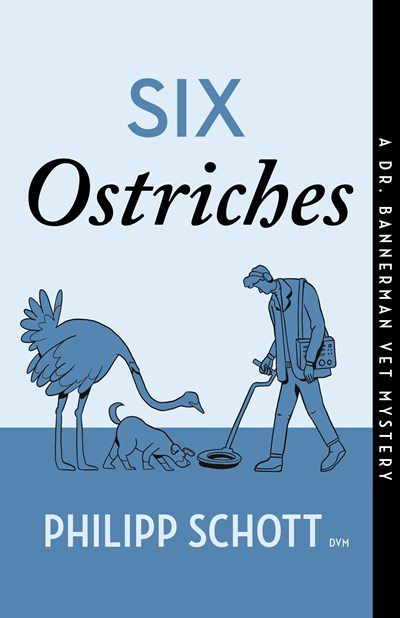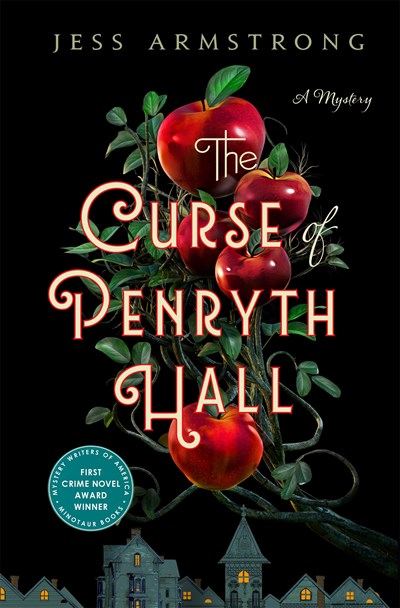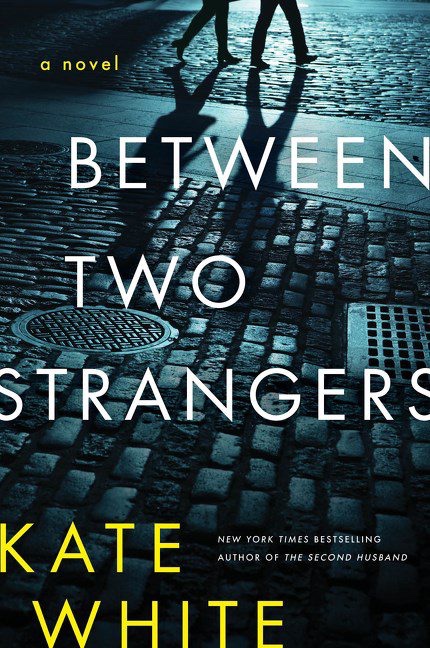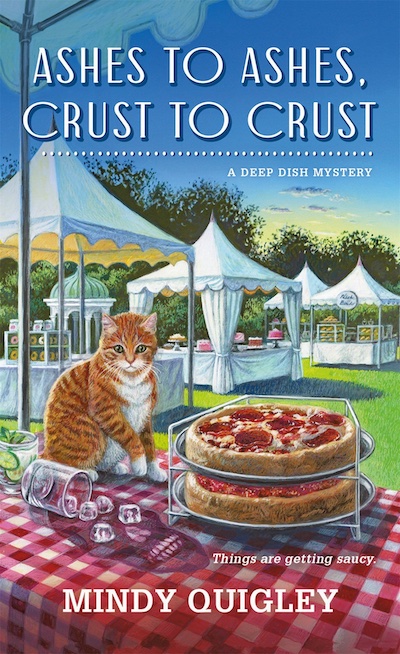This unexpected and brilliant work examines the work of life: self love, self forgiveness, and the need to have others see us as we really are. Cambridge, MA psychologist Dr. Gregory Weber’s life is chugging along, grumpy teenager daughter notwithstanding, despite Gregory living every day with a horrible mistake he made when he was 17, something he’s told nobody about and that stops every relationship from being whole. All is turned upside down when a patient who claims he asked her to start therapy shows up, a woman he could swear he never encountered before. In no time, he’s deeply in love this intriguing woman and desperate to see every Wednesday at 1:00, even though from the beginning she takes his seat at each session and insists that he’s in the patient role. What happens over time, with old and new secrets increasingly working their way toward the surface, threatens to destroy Gregory’s life as he knows it. The ending here, which includes a startling twist, is both satisfying and teaches readers profound lessons about the nature of what we owe others and ourselves. A must read.
Review
Both fans and newcomers to the series can sink deep into the pages of Doiron’s latest Mike Bowditch adventure, which sees the Maine game warden’s family vacation upended by what at first appears to be a boating accident. A man’s arm is found floating in the lake, clearly torn off by a boat propeller. Finding the related body opens a new scenario that Mike, local police, and the local forensic examiner puzzle to solve while also navigating the behavior of the rich. They live on the lake where the arm was found and aren’t keen on having their vacations interrupted. Law-enforcement politics are also to be maneuvered around, a tricky task when the lake constable wanted a game warden’s job but was considered too erratic. At the center of the maelstrom is the calm circle of Mike’s family, whose love and stability provide a stark contrast to the nail biting scenes facing the warden. Wilderness thrillers provide a great break from the real world—get this one on your list.
What’s the scariest place in crime fiction these days? Yes, that would be the suburbs. Alexis and Sam, her husband, buy a run-down house in a super-posh neighborhood in the DC suburbs. They love what the home could become, but for now it just feels like a bottomless money pit. Alexis is pregnant with the couple’s second child, and with little help from Sam—he’s trying for partnership at his law firm—motherhood is no picnic. To say the two grate on each other is an understatement. It doesn’t help that most people in the neighborhood assume that brown-skinned Alexis (she’s part Honduran) is one of the help. But the women in the neighborhood, chardonnay in hand, do try to make her feel welcome, while pumping her for gossip. When their neighbor Teddy is found dead by the nearby Potomac River—he was out for a run—everything takes on a sinister patina. In the ensuing weeks, Alexis grows close to Blair, Teddy’s widow, offering support while Blair fills her in on the lives of their neighbors. They’re a creepy crew if there ever was one, forever loitering in each other’s backyards, peeking into windows. Could Teddy’s death be linked to one of them? In the armful of suburban domestic thrillers publishing this summer, this debut—with its wild, super-spin of a plot, in which everything is turned upside down—is one not to miss.
I eagerly await the books in the Odessa Jones series, and the latest offering is better than ever. Odessa (Dessa) is a realtor/caterer in suburban New Jersey. Life is going well—housing sales are way up—until one of her realtor colleagues, Anna Lee, is killed in a hit and run while out jogging. Could it have been murder? Dessa can’t help but become involved. She goes deep into her colleague’s life, uncovering a surprising past and a present in which Anna was being stalked. But why would anyone threaten this young woman? In a brilliant move on the author’s part, Dessa ends up discovering her connection to Anna, one that extends back decades to Dessa’s first fiancé, when she was barely in her twenties. Part of the delight of this series, which is set in a diverse community, is the recurring characters, from Dessa’s family-like colleagues to restaurateur Lennox Royal—a possible love interest?—to Aunt Phoenix. Dessa’s second sight—she sometimes has the ability to see aura-like glimmers over people, among other paranormal skills—is a gift she has along with her aunts. It’s introduced deftly in the book, and even skeptics will find the protagonist’s gift wholly credible–at least while they’re wrapped up in the plot. This is billed as a cozy—there is a cat and plenty of tea—but Wesley pushes a bit beyond the genre’s traditions. Dive in with this volume, but if you have the time, start with volume one, A Glimmer of Death. You won’t be disappointed.
A school shooting in fictional Charon County, VA, reveals horror and catalyzes reckoning in S.A. Cosby’s eagerly awaited follow-up to Razorblade Tears. This is, unsurprisingly, a masterpiece of Southern noir, but that’s selling it short: it’s a fantastic novel, period. The first responders to the shooting are led by Sherriff Titus Crown, a Black man who won a contentious, racist battle for his seat and who now safeguards Klan members and kind neighbors alike. Titus is able for them all, alternating deep kindness with cutting, politically savvy one-liners that put racists in their place. (Appropriate, given his lack of fondness for “stand[ing] there like an extra in Gone with the Wind.”) But even he is thrown when the investigation into the school shooter—a Black man killed at the scene by white cops—uncovers a grisly secret. Join Titus and his meticulously drawn, flawed family, colleagues, and townsfolk for a deep introspection on how evil begets evil and good begets good. And watch for the gripping movie that’s sure to spring from Cosby’s pages.
My favorite veterinarian/amateur detective is at it again. Winter is just winding down in rural Manitoba when Dr. Peter Bannerman is called to care for an ostrich who’s swallowed a bright and shiny object, which turns out to be an ancient Viking medallion—or at least a good facsimile. The object undergoes analysis as Peter investigates a horrifying series of animal mutilations, accompanied by his prize-sniffing dog, Pippin. In this book, Peter learns to keep his investigations quiet. His wife is concerned over his safety, and his Mountie brother-in-law is sick of what he brands as useless interference. But Peter can’t quit, he’s far too caught up in the tragic deaths of his patients. Described as having a mild case of Asperger’s, he brings to bear strong logical skills and the ability to see connections among the mutilations, the artifact, and the white-supremacist communities in Manitoba. A compelling read, a fascinating community, and a knock-out lead character. More, please.
True confession: I can’t sew. Not to even to hem a pair of pants. But that hardly stopped me from enjoying Seams Deadly. After discovering her teaching assistant in bed with her boorish, snobbish husband—cheap, too, if he won’t rent a hotel room—middle-school teacher Lydia Barnes ups and moves from Atlanta to the mountain town of Peridot, Georgia. It’s very Mayberry RFD, with friendships and gossip galore. Lydia connects with her fellow sewists—in fact, she gets a job at the Measure Twice fabric store—and before you can say “zigzag stitch,” she’s set up on a date with her handsome neighbor and the town’s bookseller, Brandon Ivey. It’s one weird date, and Lydia’s comedic voice comes to the fore as she narrates the evening. But weird only gets weirder as later that night, she comes across Brandon dead as can be, with a pair of dress shears lodged deep into his neck. Ouch! Newcomer Lydia is the police’s number one suspect, and when another body is found, the cops are ready to lock her up. Lydia turns to the sewists to help get her out of this mess. If only it were that simple. Special mention goes to Baby Lobster, Lydia’s cat, for valor extraordinaire.
Devil-may-care heiress Ruby Vaughn has just sent the latest of her boss’s housekeepers running, with the woman on the way out muttering something about “a den of sin and vice.” Ruby does like to knock back a few drinks and scarcely cares about propriety, having planned, while a nurse during the Great War, to set up home with her fellow nurse and lover, Tamsyn. When that antiquarian-bookseller boss announces, “I’ve been thinking,” Ruby knows it doesn’t usually bode well, but this time there’s an upside. The trip he wants her to undertake, delivering mysterious books to a Ruan Kivell in Cornwall, brings her back in contact with Tamsyn, now Lady Chenoweth. Penryth Hall, Tamsyn’s miserable home with her abusive husband, only makes Ruby long all the more for the life she could have had with Tamsyn. When awful Lord Chenoweth is found dead, his body slashed as though by animals, the area’s depths of superstition and past misdeeds begin to reveal themselves, as do the powers of Ruan, the local Pellar, a powerful folk healer. Ruby refuses to believe in the curse that the locals say Chenoweth perished from, pursuing instead the help of the fledgling science of forensics to figure out what happened and restore Tamsyn’s happiness. This debut won the Mystery Writers of America/Minotaur First Crime Novel Competition, a well-deserved honor for a book whose gutsy main character and immersive world-building will remind readers of Margaret Dove in Evie Hawtrey’s And By Fire.
Kate White’s suspense novels always provide me with the perfect imaginary getaway—and Between Two Strangers does not disappoint. Struggling artist Skyler Moore gets summoned to a posh Scarsdale law firm on a matter of private business, only to discover that she’s to receive a large inheritance. We’re talking millions here (feel free to take ten minutes and imagine this happening to you). The catch? She has no idea who Christopher is, the guy who left her such a sum. Only after research and days of reflection does she realize he was a one-night stand from over a decade ago, when she was a grad student in Boston; she has had no contact with him since. It’s not surprising that Skyler suppressed memories of that evening as it was just a few days later that her younger sister, also a student in Boston, went missing. While being harassed by Christopher’s family, especially his wife, who’s convinced Christopher and Skyler were having an affair, Skyler has to keep it together for an important exhibit she has coming up…but can’t help being drawn back to that one fateful weekend. What was Christopher trying to tell her through the trust he left her?
First things first: Quigley’s sophomore effort is every bit as witty, character-driven, and well-plotted as last year’s Six Feet Deep Dish. As always, Geneva Bay, Wisconsin chef and pizzeria owner Delilah O’Leary has a few too many things going on. She’s hoping to win the “Taste of Wisconsin” culinary contest, but can’t quite get the recipe exactly right. Her BFF and sous chef, Sonya, is having an affair with none other than the wife of a celebrity chef. And as luck would have it, he’s the judge for the competition. Bad timing! Meanwhile, her pit bull of a great-aunt is suddenly throwing a lot of shade her way. With no explanations. Even Butterball, the cat she shares with her ex-fiancé, wants out. But when visiting the new juice bar—owned by her ex’s annoying girlfriend—she witnesses one of the customers keel over, likely dead from a poisoned smoothie. And before you can say Pretzel Crust Deep-Dish Bratwurst Pizza, Delilah is drawn into some very risky goings-on. The satire is a joy, Delilah’s narration is sheer pleasure, and her restaurant crew provides plenty of balance. This is turning out to be one of the best new cozy series going.










